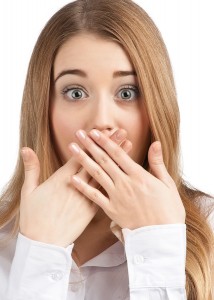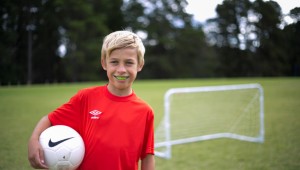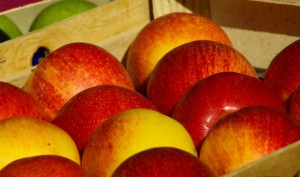A beautiful, healthy smile is often the end result of wearing braces. The time you spend in orthodontic treatment is an investment in the good health and appearance of your smile. In Sioux Falls, SD, Dr. Kevin Horner, Dr. Keri Barrow and the Horner Barrow Orthodontics team also know that having braces can pose some challenges. Many of these challenges are commonly faced by anyone who has braces, such as flossing, getting food stuck in your braces or orthodontic appliance, and bad breath.
Today, let’s talk about bad breath and what you can do to avoid it. You shouldn’t have to avoid a conversation with someone because you are afraid you have bad breath.
Fresh Breath Tips for Braces Wearers
• Choose to eat a healthy, well-balanced diet. Unhealthy, overly-processed foods that are full of sugar can contribute to bad breath. Choose to eat fresh produce, healthy proteins and grains, and dairy products.
• Drink healthy beverages. Stay away from sugary sodas, energy drinks and juices for the same reason – they also contribute to bad breath.
• Keep your body properly hydrated. A constantly dry mouth inhibits the production of saliva, which can lead to bad breath. Regular production of saliva removes bad bacteria and excess food from the mouth, which, in turn, will lead to fresher breath.
• Brush regularly and brush often. Brush your teeth (and your tongue) first thing each morning, after every meal and snack, and before you go to bed, to remove those food particles and bacteria that lead to bad breath.
• Remember to floss. Flossing with braces might seem a bit tricky, but it is an absolute must. The team at Horner Barrow Orthodontics can demonstrate the most effective way to floss while wearing braces.
• Use a mouthwash. Use a mouthwash recommended by Dr. Horner or Dr. Barrow. To achieve optimal results, swish the mouthwash around in your mouth for 30 seconds.
• Continue to have regular dental checkups and cleanings. Regular dental exams and cleanings are even more important when you are wearing braces. Having cavities can delay your orthodontic treatment progress, so be sure to visit your family dentist every six months.
Practice Good Hygiene Every Day
Good oral hygiene practices are important every day, whether or not you wear braces. However, they are even more important during the time you wear braces. In addition to your regular orthodontic checkups, see your general dentist for cleanings and exams.
Together, you and the Horner Barrow Orthodontics team can help keep your mouth healthy and fresh during and after your orthodontic treatment.




